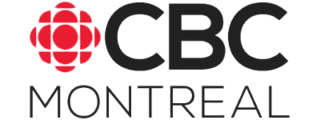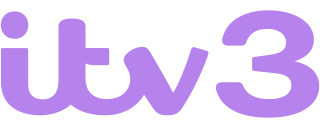Related Research Articles

The Hellenic Broadcasting Corporation, commonly shortened to ERT, is the state-owned public radio and television broadcaster of Greece.

BBC Television is a service of the BBC. The corporation has operated a public broadcast television service in the United Kingdom, under the terms of a royal charter, since 1927. It produced television programmes from its own studios from 1932, although the start of its regular service of television broadcasts is dated to 2 November 1936.

TG4 is an Irish free-to-air public service television channel. It launched on 31 October 1996 and is available online and through its on-demand service TG4 Player in Ireland and beyond.
RTÉ Radio 1 is an Irish national radio station owned and operated by RTÉ and is the direct descendant of Dublin radio station 2RN, which began broadcasting on a regular basis on 1 January 1926.
Three, stylised as +HR=E, is a New Zealand nationwide television channel. Launched on 26 November 1989 as TV3, it was New Zealand's first privately owned television channel. The channel currently broadcasts nationally in digital free-to-air form via the state-owned Kordia on terrestrial and satellite. Vodafone also carries the channel for their cable subscribers in Wellington and Christchurch. It previously broadcast nationally on analogue television until that was switched off on 1 December 2013.

CBMT-DT is a television station in Montreal, Quebec, Canada, broadcasting the English-language service of CBC Television. It is owned and operated by the Canadian Broadcasting Corporation alongside Ici Radio-Canada Télé flagship CBFT-DT. The two stations share studios at Maison Radio-Canada on René Lévesque Boulevard East in Downtown Montreal; CBMT-DT's transmitter is located atop Mount Royal.

ITV3 is a British free-to-air television channel owned by ITV Digital Channels, a division of ITV plc. The channel was first launched on Monday 1 November 2004 at 9 pm, replacing Plus. ITV3 is the sixth-largest UK television channel by audience share and the largest after the five main terrestrial services, the position which was previously held by its sister station ITV2. The channel is known for repeats of ITV dramas, and including sequential reruns of Agatha Christie's Poirot, Classic Coronation Street, Classic Emmerdale, Heartbeat, Inspector Morse and A Touch of Frost, amongst others, as well as formerly showing repeats of Kojak, Numb3rs, Columbo, Cagney & Lacey and The Bill.

Sky Television plc was a public limited company which operated a nine-channel satellite television service, launched by Rupert Murdoch's News International on 5 February 1989. Sky Television and its rival British Satellite Broadcasting suffered large financial losses, and merged on 2 November 1990 to form British Sky Broadcasting. A programming merger took effect on 1 December 1990.
Radio Nova was a pirate radio station broadcasting from Dublin, Ireland. Owned and operated by the UK pirate radio veteran Chris Cary, the station's first broadcasts were during the summer of 1981 on 88.5 MHz FM and 819 kHz AM.

BVN, is a Dutch free-to-air television channel providing Dutch public television to viewers around the world. It is a service of the public broadcasting company of the Netherlands, Nederlandse Publieke Omroep (NPO).

CKPG-TV is a television station in Prince George, British Columbia, Canada, affiliated with Citytv. The station is owned by Pattison Media, and maintains studios on 3rd Avenue in Prince George; its transmitter is located atop Pilot Mountain.
Night Network, Night Time and Night Shift were names given to the overnight schedule of the ITV network in the United Kingdom. The first ITV company began 24-hour broadcasting in 1986, with all of the companies broadcasting through the night by the end of 1988. At first, individual companies created their own services; however, before too long, many of the smaller ITV stations began simulcasting or networking services from others.
A pirate television station is a broadcast television station that operates without a broadcast license. Like its counterpart pirate radio, the term pirate TV lacks a specific universal interpretation. It implies a form of broadcasting that is unwelcome by the licensing authorities within the territory where its signals are received, especially when the country of transmission is the same as the country of reception. When the area of transmission is not a country, or when it is a country and the transmissions are not illegal, those same broadcast signals may be deemed illegal in the country of reception. Pirate television stations may also be known as "bootleg TV", or confused with licensed low-power broadcasting (LPTV) or amateur television (ATV) services.
Gaelic broadcasting in Scotland is a developing area of the media in Scotland which deals with broadcasts given in Scottish Gaelic and has important links with the efforts of Gaelic revival in Scotland. As well as being informative, Gaelic broadcasting in Scotland has acquired some symbolic importance. Whilst opinion polls show that the vast majority of Gaels feel they have been ill-served by broadcasting media, Scotland now has Gaelic broadcasting all over Scotland both on television and radio.
RTÉ Television is a department of Raidió Teilifís Éireann (RTÉ), Ireland's public service broadcaster. Its first channel was Telefís Éireann, which began broadcasting on 31 December 1961. Since the 1960s, RTÉ Television has added channels and digital television service.

New Hellenic Radio, Internet and Television or NERIT (ΝΕΡΙΤ) was the state-owned public broadcaster for Greece from 4 May 2014 to 11 June 2015. Antonis Samaras' coalition government established NERIT to replace the Hellenic Broadcasting Corporation (ERT) in 2013: NERIT began broadcasting under their identity on 4 May 2014, replacing the transitional service Dimosia Tileorasi.
Virgin Media Three, also called Virgin Three, is an Irish free-to-air television channel owned by Virgin Media Television.
The RTÉ News channel is an Irish free-to-air news television network operated by Raidió Teilifís Éireann (RTÉ). The channel launched as RTÉ News Now available exclusively online on 12 June 2008. The channel began broadcasting as a free-to-air channel on 29 October 2010 on Saorview.
References
- 1 2 3 The History of Irish Pirate Television, Irish Broadcasting History & Hall of Fame
- ↑ Cinema owners in protest over pirate TV plan, The Irish Press , 15 April 1981
- 1 2 "Channel D, when television went pirate". Come Here to Me. 23 February 2012.
- ↑ Walsh, John (7 October 2022). "Hugh O'Brien and David Dennehy on ARD". Irish Pirate Radio Audio Archive.
There are plenty of adverts including one for Channel 3 television, later to be known as Channel D. Channel 3 was one of a handful of short-lived pirate television stations broadcasting in the 1980s.
- 1 2 3 4 "Radio Radio" (pdf). 1988. p. 86. Retrieved 8 December 2024.
- ↑ Cathain, Eamonn (1981-08-06). "Flickering by Night" (pdf). DX Archive. In Dublin. Retrieved 2020-09-23.